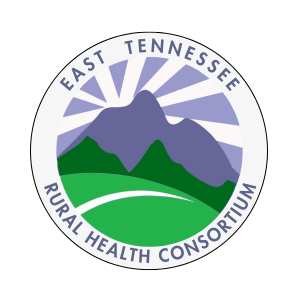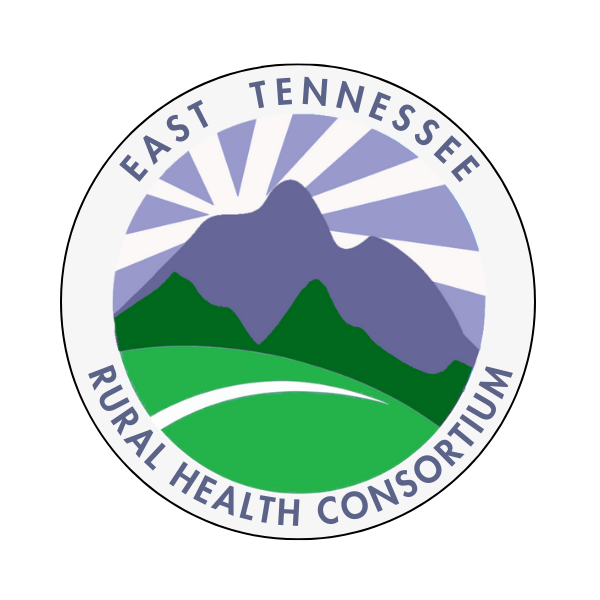
East TN RHC Basics
Tennessee is in the midst of an opioid epidemic. In 1999, 342 residents of Tennessee died from prescription medication overdose. However, in the year 2021, Tennessee reported 3,038 overdose deaths and the sixth-highest opioid prescription rate in the United States. Although Tennessee is currently experiencing a reduction in the number of opioid prescriptions filled, the number of hospitalizations and overall opioid deaths are still increasing, which is most likely due to the increased use of heroin and the addition of synthetic fentanyl to other substances. This epidemic has had a staggering impact on infants, children, adolescents, adults, families, communities, and professional workforces (e.g., healthcare, judicial, law enforcement).
The goal of the consortium, led by the University of Tennessee, Knoxville (UT), is to actively work together to decrease opioid use disorder (OUD) and overdose deaths in identified rural counties. To reach these goals, the consortium serves to coordinate prevention, treatment, and recovery services. OUD stigma remains a barrier to healthcare. To address this, the consortium has developed and implements education programs for primary care providers and the target population that includes information on the science of addiction and recovery success stories, which have been shown to effectively decrease social and structural stigma. Mentoring programs to support professional development are also active in pharmacy, faith leadership, and expansion of medication for opioid use disorder (MOUD).
Consortium Members
- American Job Center – East Tennessee WIOA Program
- American Job Center – 4/Site Lead Career Center
- Behavioral Health Group
- Cempa Community Care
- Cherokee Health Systems
- Childcare Resource & Referral Network
- Chota Community Health Services
- East Tennessee Quality Growth
- Institute for Public Service, University of Tennessee
- LeConte Medical Center
- Live Free Claiborne
- Metro Drug Coalition
- Morgan County Correctional Complex
- Morgan County General Sessions
- Morgan County Residential Recovery Court
- Mountain People’s Health Council
- Oak Ridge National Laboratory
- Positively Living
- Region II EMS Directors Association
- Regional Forensic Center
- Rescue 180 Coalition
- Roane County Anti-Drug Coalition
- Rural Medical Services, Inc.
- Servolution Health Services
- Sheriff of Grainger County
- Sheriff of Hamblen County
- Sheriff of Scott County
- STAND – Scott County
- Tennessee Associations for Children’s Early Education
- Tennessee Bureau of Investigation
- Tennessee Commission on Children and Youth
- Tennessee Department of Children’s Services East Region
- Tennessee Department of Correction – Rehabilitative Services of Probation & Parole, Dept. of Corrections
- Tennessee Department of Health – East Tennessee Regional Health Office
- Tennessee Department of Health – State Office of Rural Health
- Tennessee Department of Human Services – 4th Judicial District Child Support Office
- Tennessee Department of Human Services –4th Judicial District Circuit Court
- Tennessee Department of Human Services – 8th Judicial District Drug Court and Community Health of East Tennessee
- Tennessee Poison Center
- Tennessee Primary Care Association (all FQHCs)
- Tennessee Valley Coalition for the Homeless
- The Hill Claiborne
- Union County ICARE
- United Methodist Church of Newport, TN
- University of Tennessee Medical Center – Neonatology
- University of Tennessee Extension Office
- University of Tennessee Health Science Center — Pharmacy
- University of Tennessee Knoxville — Public Health
- University of Tennessee Medical Center – Obstetrics & Gynecology

